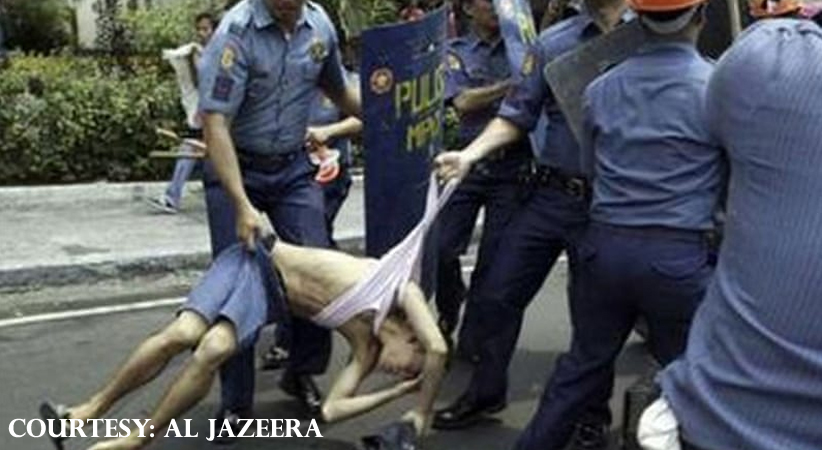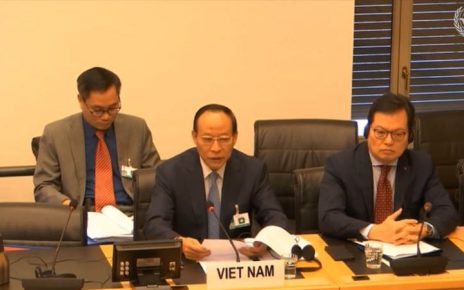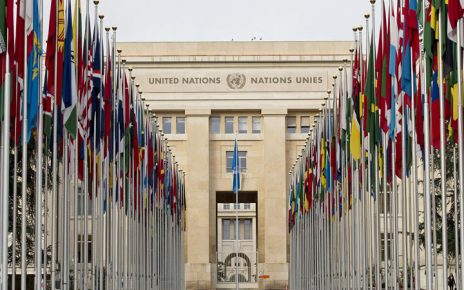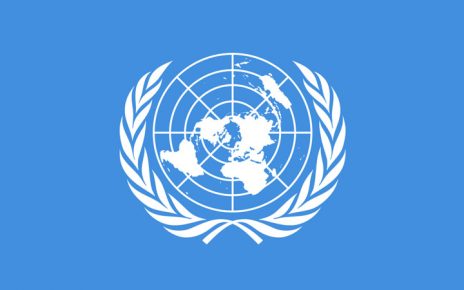For the last fifty years, Philippines has faced serious and active insurgency starting with the Communist Party of the Philippines (CPP) and its New People’s Army (NPA) which launched its armed struggle in 1968.[1] The southern Philippines has a long history of conflict, with armed groups including the Muslim separatists, who comprise of – the Moro National Liberation Front (MNLF) in 1972 and its two break-way factions, the Moro Islamic Liberation Front (MILF) from 1977 and the Abu Sayyaf in 1991.
Yet, these events did not prevent Philippines from enacting laws prohibiting torture.
In fact, the contrast between India and Philippines could not be starker: Philippines ratified the UNCAT and its Optional Protocol while India consistently refused to ratify the UNCAT. Philippines submitted its report to the UN Human Rights Committee in 2012 but India’s previous report to the UN Human Rights Committee was in 1997. India never allowed visit by the UNSR on Torture and while Philippines as a party to the OPCAT, invited the OPCAT in June 2015. Philippines enacted an anti-torture law in 2009 while India refuses to enact the same despite giving commitment to the parliament way back.
Philippines had been facing deadly insurgencies from the Communist Party of the Philippines (CPP) and various armed groups of Mindanao two decades before India faced insurgency in Jammu and Kashmir. The question that must be asked if Philippines can take domestic measures to criminalise torture and subject itself to international scrutiny what prevents India to do so.
Legal Framework of the prohibition of torture and ill-treatment
Philippine’s legal framework prohibits the crime of torture. The 1987 Philippines Constitution prohibits the use of “torture, force, violence, threat, intimidation” and “secret detention”, and promises “penal and civil sanctions” for anyone who uses torture, along with compensation for victims.[2]
The country’s Revised Penal Code (RPC) also criminalizes all acts of torture with corresponding penalties.
The Philippines ratified the UN Convention on Torture and Other Cruel, Inhuman or Degrading Treatment or Punishment in 1986, and its Optional Protocol in 2012, albeit with a declaration postponing visits by the Subcommittee on Prevention for three years. It has also been a state party to the International Covenant on Civil and Political Rights since 1986.
Both these treaties prohibit torture and other ill-treatment.
In 2009, the Philippines recognized torture as a separate crime by enacting the standalone Anti-Torture Act.[3] The law legally defines and penalizes torture, as well as provides remedies and redress for its victims.
With this enactment, the crime of torture is now treated separately and distinctly with other crimes provided in the country’s Revised Penal Code (RPC), and thereby making its domestic legislation compatible with its obligations and commitments as a state party to Convention against Torture.
Domestic law: Anti-Torture Act, 2009
The 2009 Anti-Torture Act sets out criminal penalties – including life imprisonment – for torture and other forms of ill-treatment. The Act is designed to “ensure that the human rights of all persons, including suspects, detainees and prisoners, are respected at all times; and that no person… shall be subjected to physical, psychological or mental harm, force, violence, threat or intimidation”.[4]
The anti-Torture law defines torture in line with Article 1 of the Convention against Torture, and penalises other forms of cruel, inhuman and degrading treatment or punishment. The Act also created an oversight body to periodically review its implementation.[5]
Under Section 3 of the Anti-Torture Act, Torture is defined as “an act by which severe pain or suffering, whether physical or mental, is intentionally inflicted on a person for such purposes as obtaining from him/her or a third person information or a confession; punishing him/her for an act he/she or a third person has committed or is suspected of having committed; or intimidating or coercing him/her or a third person; or for any reason based on discrimination of any kind, when such pain or suffering is inflicted by or at the instigation of or with the consent or acquiescence of a person in authority or agent of a person in authority. It does not include pain or suffering arising only from, inherent in or incidental to lawful sanctions”.[6]
Section 6 of the Anti-Torture Act makes freedom from torture an absolute right. A state of war or a threat of war, internal political instability, or any other public emergency, or a document or any determination comprising an “order of battle” shall not and can never be invoked as a justification for torture or other cruel, inhuman and degrading treatment or punishment.[7]
The Anti-Torture Act also provides that no person shall be expelled, returned or extradited to another State where there are substantial grounds to believe that such person shall be in danger of being subjected to torture.[8]
Legal safeguards and complaint mechanisms
The Anti-Torture Act prohibits “secret detention places, solitary confinement, incommunicado or other similar forms of detention, where torture may be carried out with impunity”. The law also requires the military and police to publicly disclose lists of all detention facilities and the names of the detainees, the dates they were arrested, and the charges against them, in addition to submitting such lists to the Commission on Human Rights and ensures that they are updated.[9]
Section 12 of the Anti-Torture Act recognises the right of detainees to physical and medical examinations by independent and competent doctors of their own choice, both before and after interrogations. If the detainee is unable to afford a doctor, the State is under an obligation to provide one, and preferably of the same sex if the detainee is a female. Furthermore, the State is required to “endeavour to provide the victim with psychological evaluation if available under the circumstances”.[10]
The Anti-Torture Act specifically states that any person who has suffered torture shall have the right to claim for compensation as provided for under Republic Act No. 7309 provided that in no case shall compensation be any lower than 10,000 pesos. Victims of torture shall also have the right to claim for compensation from such other financial relief programmes that may be made available to them under existing laws, rules and regulations.[11]
The filing of a complaint of torture is not subject to a time limitation[12] and those convicted of torture are not allowed to benefit from a special amnesty law or similar measures exempting them from criminal proceedings and sanctions.[13]
The recognition of torture as a criminal act in Philippine is a positive step towards preventing torture and addressing impunity in compliance with international treaty obligations.
The absence of any time limitation for the filing of a complaint of torture, and prohibiting the grant of special amnesty to those convicted of torture sends a strong signal that the Philippines is serious in its commitment to eradicate the practice.
The prohibition on secret detention facilities and the requirement on the police, the military and other lawn enforcement agencies to submit an updated list of all detention centres and facilities with pertinent data on detainees or prisoners to the Commission on Human Rights (CHR), a list which is available to the public;[14]
- The exclusion of any confession, admission or statement obtained through torture as evidence in any proceedings, except if used against the perpetrators of torture;[15]
- Institutional protection to torture victims (through prompt and impartial investigation by government agencies and protection from harassment, threat or intimidation);[16]
- The availability of preliminary remedies such as petitions for the issuance of the writ of habeas corpus (to compel government agents to bring a person under detention in court and determine the legality of his/her detention),[17] the writ of amparo (to provide protection to a person whose life, liberty and security is violated or threatened and to compel government agents to specify actions to be taken to investigate, preserve evidence and apprehend those responsible for the death or disappearance of a person)[18] and the writ of habeas data (to compel government agents to produce, delete or rectify whatever data they have gathered about a person)[19] to torture victims and their families;[20]
- Assistance from the Commission on Human Rights (CHR) and the Public Attorney’s Office (PAO) in filing a complaint;[21]
- The right to physical, medical and psychological examination before and after interrogation;[22]
- The inclusion of superiors and immediate commanding officers in the investigation and prosecution of the crime of torture as principals equally liable with the perpetrators either through participation or wilful/negligent failure to prevent or investigate allegations of torture;[23]
- The grant of financial assistance to victims;[24]
- The formulation of a comprehensive rehabilitation programme for torture victims.[25]
UN Special Rapporteur on Torture on the status of torture in Philippines
In its 4 March 2013 Report during the Twenty-second session of the Human Rights Council, Juan E. Méndez- Special Rapporteur on torture, and other cruel, inhuman or degrading treatment or punishment expressed regret that the Government of the Republic of Philippines has not responded to a communication dated 25 July 2012, thereby failing to cooperate with the mandate issued by the Human Rights Council. The communication referred to the alleged abduction, detainment, and torture of Ms. Melissa Roxas and the failure to prosecute suspected perpetrators once the judiciary confirmed the use of torture during Ms. Roxas‟ detention.[26]
The Special Rapporteur observed that the rights of Ms. Roxas under the UN Convention against Torture have been violated and called on the Government to undertake an impartial and prompt investigation, and prosecute and punish those responsible. The Special Rapporteur also called on the Government of the Republic of the Philippines to provide Ms. Roxas redress, award her fair and adequate compensation, and provide her appropriate social, psychological, medical and other relevant treatment.[27]
UN Committee against Torture
On 3 June 2015, the UN’s torture prevention body has urged the Philippines to deal urgently with prison overcrowding and improve independent monitoring of places of detention as part of efforts to protect people deprived of their liberty against torture and cruel, inhuman or degrading treatment.[28] The call came at the end of the first visit to the Philippines by the Sub-Committee on the Prevention of Torture (SPT), when the six member delegation presented its confidential preliminary observations to the Filipino authorities.
And, in its concluding observations on the third periodic report of the Philippines adopted by the UN Committee against Torture at its fifty-seventh session (18 April-13 May 2016), the Committee has raised concern on impunity as a result of the ineffective implementation of legislation and made the following observations:
“While welcoming the adoption of national legislation criminalizing torture, the Committee is concerned that obstacles continue to exist for the effective implementation of the Anti-Torture Act. The Committee is concerned that impunity for acts of torture continues to prevail, as illustrated by the fact that although the number of cases of torture reported to the Commission on Human Rights of the Philippines has risen since the adoption of the Act, only one person has been convicted to date in 2016, more than six years since the Act was adopted. The Committee is also concerned that the committee created under section 20 of the Anti-Torture Act to oversee the implementation of the Act has not yet done so (arts. 2, 4, 12 and 13)”.[29]
Further, the UN Committee expressed concern that arrests are being carried out without warrants by police, military personnel and ordinary citizens. It also expressed concern about reports that some arrests are made by police officers in civilian clothes and that many detained suspects have reportedly been subjected to torture and ill-treatment with impunity.
UN Human Rights Committee
In November 2012, the Human Rights Committee, in its concluding observations on its review of the Philippines’ record under the ICCPR, stated its concern at the “continued allegations of torture and the lack of data on the incidence of torture, particularly on the number of investigations, prosecutions, convictions and sanctions imposed on perpetrators of torture…”[30]
During the 36th session of the Human Rights Council in September 2017, 39 states supported a joint statement expressing concern over the thousands of killings associated with the Philippines’ so-called ‘war on drugs’ and calling on the Philippines “to cooperate with the international community to pursue appropriate investigations into these incidents, in keeping with the universal principles of democratic accountability and the rule of law.”[31]
Culture of impunity: Question mark over implementation of the anti-torture law
The enactment of the anti-Torture law is an affirmation of the Philippines’ commitment to its obligations to international law.
However, having a law is not a guarantee to protection unless one ensures its full implementation. The Philippines experience so far is a case in point.
Between 2010 and 2014, the Amnesty International has documented at least 50 cases of torture and other ill-treatment during arrest and detention.[32]
On the eve of International Day in Support of Victims of Torture in 2017, Philippines based human rights group Karapatan stated that torture remains a means by government security forces to extract information from suspects.[33] As on May 31, 2017 Karapatan had documented 52 incidents of torture under the current administration, while in the six years of the Aquino regime, 248 cases of torture were reported to the organization.[34]
In January 2014, the Commission on Human Rights had revealed the discovery of a torture scheme in which police officers played a game “wheel of torture” at a secret detention facility near Manila as a way to extract information from suspects – and also to have fun in the process.[35]
Under this scheme of torture, the detainees- mostly suspected drug traffickers – were punched if the “torture wheel” stopped at “20 seconds Manny Pacman,” referring to a nickname of the Filipino boxer Manny Pacquiáo, or hung upside down if it stopped at a punishment called “30-second bat”. Amnesty International termed the practice despicable.[36]
Despite the filing of many well-documented torture cases, it was only in April 2016 that the first conviction under the Anti-Torture Act of 2009 was recorded when police officer Jerick Dee Jimenez was sentenced to a maximum of two years and one month imprisonment by a court in Pampanga for the torture of Jerryme Corre. The court demanded that the officer pay Jerryme Corre damages amounting to 100,000 pesos (approximately USD $2,173). Another police officer faces the same charges but remains at large.[37]
This case marked the first conviction under the 2009 Anti Torture statute.[38]
Philippine’s legislative framework is comprehensive in its criminalization of torture and ill-treatment. The safeguards that the anti-torture law provides are also broad and affirm the country’s commitments to international treaties prohibiting torture.. However, the effectiveness of the implementation of the Anti-Torture Law of 2009 is found wanting considering the widespread reports of use of torture in the country.
The observations of the various treaty monitoring bodies is also indicative of the country’s failure to fully implement the anti-torture law and comply with its international obligations.
A culture of impunity still persists nearly a decade after the anti-torture legislation has been enacted. Reports of alleged torture by law-enforcement officials and the military are routine.
The lack of effective investigation, lack of accountability and impunity are some of the reasons why torture still prevails in the Philippines resulting in perpetrators going unpunished and leaving victims without appropriate redress or reparation despite a comprehensive anti-torture law being in existence for around a decade.
END NOTES:
[1]. The Communist Insurgency in the Philippines: Tactics and Talks, International Crisis Group; 4 February 2011, available at: http://www.crisisgroup.org/en/regions/asia/south-east-asia/philippines/202-the-communist-insurgency-in-the-philippines-tactics-and-talks.aspx
[2]. 1987 Philippine Constitution, Article III, Section 12(2) and (4)
[3]. Republic Act No. 9745 “Anti-Torture Act 2009”, s. 3(a), available at: http://www.lawphil.net/statutes/repacts/ra2009/ra_9745_2009.html.
[4]. Republic Act no. 9745, Section 2(b).
[5]. Anti-Torture Act, Section 20.
[6]. Philippines’ Anti-Torture Act of 2009, op. cit. 4, section 3
[7]. Philippines’ Anti-Torture Act of 2009, op. cit. 4, section 6
[8]. Section 17
[9]. Ibid., Section 7
[10]. Anti-Torture Act, Section 12
[11]. Philippines’ Anti-Torture Act of 2009, op. cit. 4, section 18.
[12]. Anti-Torture Act Implementing Rules and Regulations, sec. 45.
[13]. Anti-Torture Act, sec. 16.
[14]. Anti-Torture Act, sec. 7.
[15]. Anti-Torture Act, sec. 8. The exception in the section is wider than that in Article 15 of UNCAT, where such statements can only be used “against a person accused of torture as evidence that the statement was made.”
[16]. Anti-Torture Act, sec. 9
[17]. Revised Rules of Court, Rule 102.
[18]. The Rule on the Writ of Amparo (A.M. No. 07-9-12 SC), September 25, 2007
[19]. The Rule on the Writ of Habeas Data (A.M. No. 08-1-16-SC), January 22, 2008
[20]. Anti-Torture Act, Section 10.
[21]. Anti-Torture Act, Section 11.
[22]. Anti-Torture Act, Section 12
[23]. Anti-Torture Act, Section 13
[24]. Anti-Torture Act, Section 18.
[25]. Anti-Torture Act, Section 19.
[26]. Report of the Special Rapporteur on torture and other cruel, inhuman or degrading treatment or punishment, Juan E. Méndez (A/HRC/22/53/Add4) dated 4 March 2013 available at https://www.ohchr.org/documents/hrbodies/hrcouncil/regularsession/session22/a.hrc.22.53.add.4_advance_version.pdf
[27]. Id
[28]. UN experts urge Philippines to tackle “chronic” prison overcrowding, Office of the UN High Commissioner for Human Rights, 3 June 2015 available at https://www.ohchr.org/EN/NewsEvents/Pages/DisplayNews.aspx?NewsID=16033&LangID=E
[29]. Concluding observations on the third periodic report of the Philippines adopted by the UN Committee Against Torture at its fifty-seventh session (18 April-13 May 2016) CAT/C/PHL/CO/3 dated 2 June 2016.
[30]. Concluding Observations of the Human Rights Committee: the Philippines, UN Doc. CCPR/C/PHL/CO/4 13 November 2012, para. 7. Available at http://www.ccprcentre.org/doc/2012/10/G1247605.pdf
[31]. Philippines drug war alarms 39 countries in UN, The Philippine Star, 29 September 2017 available at https://www.philstar.com/headlines/2017/09/29/1744077/philippines-drug-war-alarms-39-countries-un
[32]. Philippines: UN torture review must spur reforms, Amnesty International, 26 April 2016 available at http://www.amnesty.org.ph/news/un-torture-review-must-spur-reforms/
[33].Torture by military, police remains routine, says rights group, The Philippine Star, 26 June 2017 available at https://www.philstar.com/headlines/2017/06/26/1713801/torture-military-police-remains-routine-says-rights-group
[34]. Ibid.
[35]. Philippines police played ‘wheel of torture’ game to extract information, The Guardian, 28 January 2014 available at https://www.theguardian.com/world/2014/jan/28/philippines-police-wheel-of-torture-game
[36]. Ibid
[37].Torture and the Right to Rehabilitation in the Philippines, International Centre for Rehabilitation of Torture Victims, https://irct.org/influencing-laws-and-policies/torture-and-the-right-to-rehabilitation-in-the-philippines
[38]. First conviction under anti-torture law since 2009, The Manila Standard, 3 April 2016 http://manilastandard.net/news/-provinces/202777/first-conviction-under-anti-torture-law-since-2009.html




